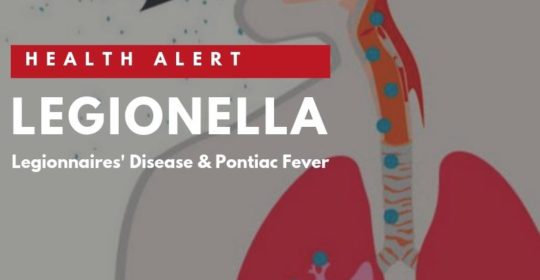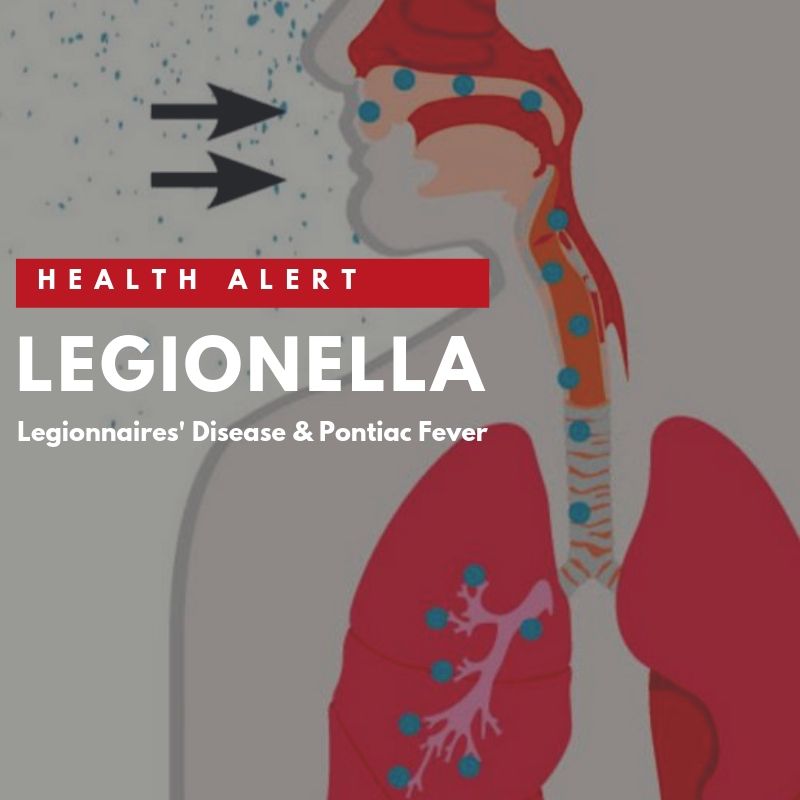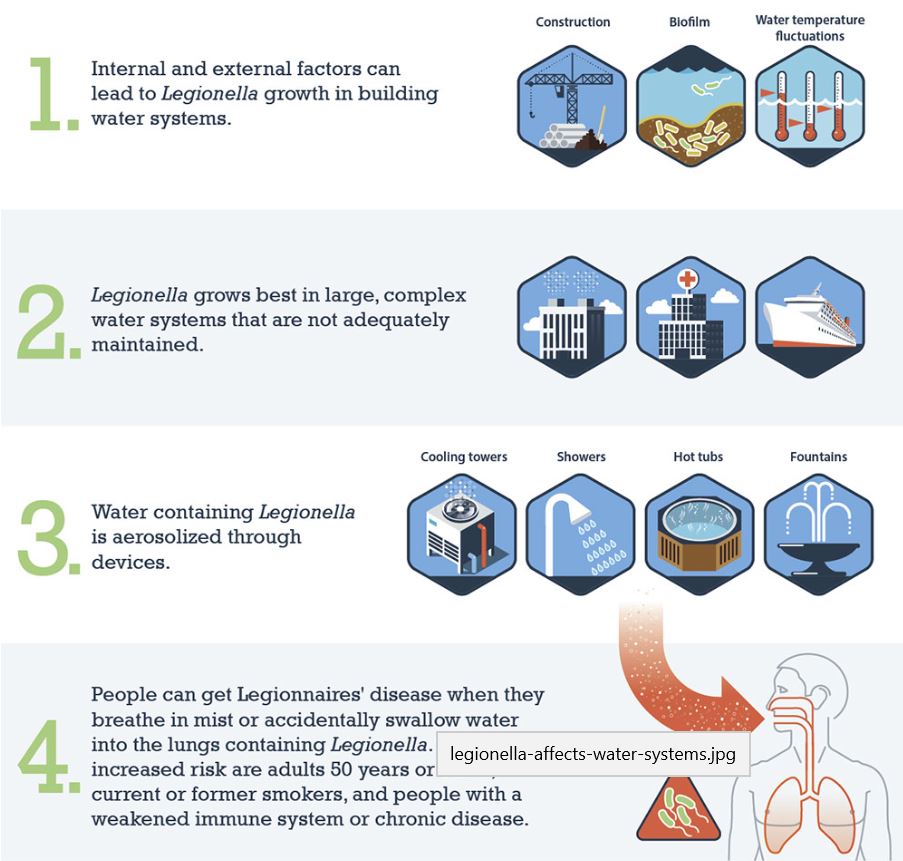
Legionella (Legionnaires' Disease and Pontiac Fever)

The Georgia Department of Public Health (DPH) and the Fulton County Board of Health (FCBOH) are continuing their investigation into the Legionella outbreak at the Sheraton Atlanta Hotel. As of July 29, 2019, there are 11 lab-confirmed cases of Legionnaires’ disease and 55 probable cases of Legionnaires’ disease related to this outbreak.
Legionnaires’ disease is a serious type of pneumonia (lung infection) caused by Legionella bacteria. People can get sick when they breathe in mist or accidently swallow water into the lungs containing Legionella. Legionella grows best in warm water that is not moving or that does not have enough disinfectant to kill germs.
Each year, 8,000–18,000 people in the United States are hospitalized with Legionnaires’ disease. Legionnaires’ disease is usually treated successfully with antibiotics, but can sometimes be fatal.
Certain groups of people are more likely to become seriously ill when infected with Legionella:
- Individuals who are 50 years of age or older
- Smokers
- People with chronic lung disease
- Individuals with weakened immune systems
How Legionella Affects Building Water Systems and People

Signs and Symptoms
People who get sick after being exposed to Legionella can develop two different illnesses: Legionnaires’ disease and Pontiac fever.
Legionnaires’ Disease
Legionnaires’ disease is very similar to other types of pneumonia (lung infection), with symptoms that include:
- Cough
- Shortness of breath
- Fever
- Muscle aches
- Headache
Legionnaires’ disease can also be associated with other symptoms such as diarrhea, nausea, and confusion. Symptoms usually begin 2 to 10 days after being exposed to the bacteria, but it can take longer so people should watch for symptoms for about 2 weeks after exposure.
If you develop pneumonia symptoms, see a doctor right away. Be sure to mention if you may have been exposed to Legionella, have used a hot tub, spent any nights away from home, or stayed in a hospital in the last two weeks.
Pontiac Fever
Pontiac fever symptoms are primarily fever and muscle aches; it is a milder infection than Legionnaires’ disease. Symptoms begin between a few hours to 3 days after being exposed to the bacteria and usually last less than a week. Pontiac fever is different from Legionnaires’ disease because someone with Pontiac fever does not have pneumonia.
Diagnosis, Treatment, and Complications
Diagnosis
People with Legionnaires’ disease have pneumonia (lung infection), which can be confirmed by chest x-ray. Clinicians typically use two preferred types of tests to see if a patient’s pneumonia is caused by Legionella:
- Urine test
- Laboratory test that involves taking a sample of sputum (phlegm) or washing from the lung
Treatment and Complications
Legionnaires’ disease requires treatment with antibiotics (medicines that kill bacteria in the body), and most cases of this illness can be treated successfully. Healthy people usually get better after being sick with Legionnaires’ disease, but they often need care in the hospital.
Possible complications of Legionnaires’ disease include
- Lung failure
- Death
About 1 out of every 10 people who gets sick with Legionnaires’ disease will die due to complications from their illness. For those who get Legionnaires’ disease during a stay in a healthcare facility, about 1 out of every 4 will die.
Diagnosis
Clinicians can use a urine or blood test to see if someone has Pontiac fever. However, a negative test doesn’t rule out that someone may have it (this is called a false negative). Clinicians most often diagnose Pontiac fever when there are other known laboratory-confirmed legionellosis cases (either Legionnaires’ disease or Pontiac fever) who may have been exposed to Legionella at the same time or place.
Treatment and Complications
Pontiac fever goes away without specific treatment.
Source:
- CDC
- Georgia DHP


Most Commented